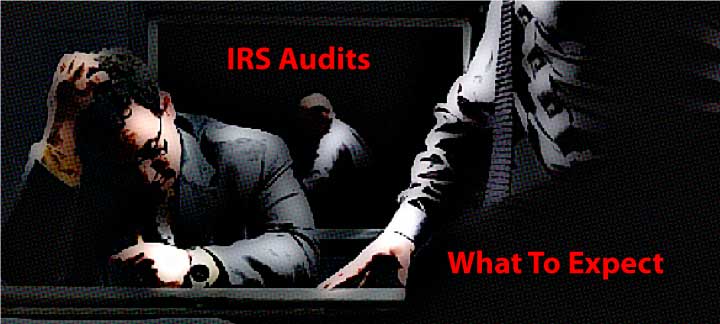What To Expect From IRS Audits | The Tax Lawyer
What is an IRS Audit?
An IRS audit is an examination of an organization’s or individual’s accounts and financial information to check that the information was reported properly and in conformity with the tax laws.
How Does the IRS Decide Whom to Audit?
The IRS randomly audits a certain percentage of the population, but also audits other taxpayers using certain techniques that the IRS commonly employs. The simplest method used by the IRS involves comparing the taxpayer’s W-2 and 1099 forms to the information actually supplied by the taxpayer. They can also check the accuracy of a taxpayer’s reporting by comparing it to the returns of related taxpayers, such as business associates or family members. Finally, the IRS may score a tax return using either the Discriminant Information Function System (DIF) or Unreported Income DIF (UIDIF). Under DIF, a score is assigned according to the taxpayer’s expected tax based on past returns. Under UIDIF, a score is assigned on the potential for unreported income. Higher scores increase the chances that your return will be audited.
What to Expect if You are being Audited
If you are going to go through a tax audit, you will receive a letter from an IRS specifying certain categories that the IRS is interested in investigating. Many audits are simply conducted through the mail but an examination audit or a field audit may take place.
In conducting the audit, the IRS will request to see receipts, invoices, records, credit card statements, cancelled checks, and other documents. During this process, the IRS checks to see whether you stated income and expenses accurately on your income tax return. If the IRS is not satisfied with the information you provide, or if certain items do not reconcile, they may decide to expand the categories being audited.
Interactions with an IRS Revenue Agent
A taxpayer has every right to know why they were selected for an audit, and it is perfectly acceptable to ask the IRS for an explanation. A revenue agent will examine and audit the financial records of individuals, businesses and corporations to make sure that tax liabilities have been met. When interacting with a Revenue Agent, it is important to be truthful and forthright. Making false statements during the audit can only make existing problems worse. IRS Revenue Agents will also expect you to comply with requests for information in a timely fashion and according to a pre-determined schedule. Being organized and meeting deadlines can help the process go more smoothly. An experienced IRS tax attorney understands how to interact with IRS Revenue Agents, when to comply and when to push back in order to protect your rights and keep the audit from spreading to addition types of tax and additional tax years.
What consequences can arise from an IRS audit?
At the conclusion of an audit, there are three possible outcomes: 1) no changes are needed; 2) the IRS proposes changes to the tax return and the taxpayer agrees; or 3) the IRS proposes changes to the tax return but the taxpayer disagrees. If you disagree with the IRS’s determination, you can file a tax appeal which eventually may lead to tax court litigation.
How a Tax Attorney Can Help
Being audited by the IRS is a frightening and intimidating process. The IRS will work hard to gain access to your documents and personal information. In some cases, the IRS will request information that is protected. Failing to assert your rights early in the process might result in a waiver of those rights down the road. You need someone on your side who understands how to make the audit process go as smoothly as possible, while still protecting your rights. If you are being audited by the IRS, seek the advice of a qualified tax lawyer.
The Tax Lawyer - William D Hartsock offers free consultations with the full benefit and protection of attorney client privilege. Call for your free consultation today.



Comments (0)